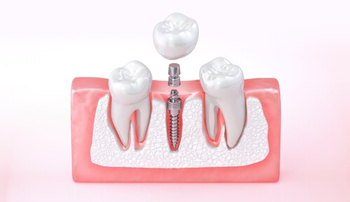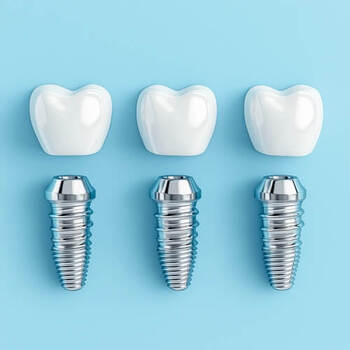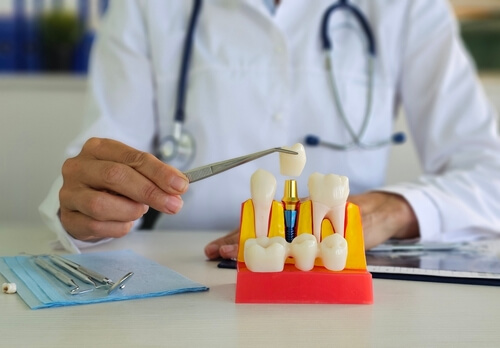
- Harris Dental Boutique
- dental implant cost, Dental Implant Procedure, implant cost factors, What are Dental Implants?
- Dental Implants
When teeth are missing, it affects much more than your outward appearance. They influence the way you chew, speak, and even how you feel in social situations. If you’re considering a long-term solution that restores both comfort and function, dental implants may offer the option you’re looking for. Some people explore dental tourism options, like getting a dental implant Kuala Lumpur offers. However, understanding the differences in quality, regulation, and safety between options in Australia and Malaysia is an important step in making an informed decision. This guide explores everything from the benefits of implants to the daily care that helps protect your oral health for the long term.
What Are Dental Implants?
Dental implants are small titanium posts placed into the jawbone to replace the root of a missing tooth. Once integrated with the bone, they provide a strong foundation for a replacement tooth, crown, or bridge. There are different types of dental implants used depending on the patient’s needs. Endosteal implants are anchored into the jaw and are suitable for people with healthy, dense bone tissue. When bone height is lacking, subperiosteal implants are placed above the jawbone but beneath the gums. Dentists choose between these types after assessing bone condition, gum support, and the placement area.
What Are the Advantages of Getting Dental Implants in Australia Over in Kuala Lumpur?

Standards Set by Australian Dental Authorities
One of the key reasons many patients choose Australian dental clinics is the oversight provided by the Australian Dental Association. This organisation ensures that dental implant treatment meets strict hygiene, safety, and ethical standards. In contrast, standards may vary significantly with implants in Kuala Lumpur, depending on the clinic’s internal protocols. Choosing dental implants in Australia means you are protected by regulations enforced by the Australian Dental Council.
Patient Safety and Healthcare Quality
In Australia, patient safety is prioritised through continuous training, standardised clinical procedures, and strong legal safeguards. Australian dental professionals follow a consistent approach to diagnosis and implant placement. In Kuala Lumpur, the quality of care can vary between clinics, especially for international patients seeking affordable dental treatments as part of a dental tourism package. Without clear oversight, risks such as implant failure or infections may be higher.
Access to Experienced Local Dentists
Australian clinics are staffed with highly skilled dentists who are trained in advanced implant techniques. These include bone grafting procedures, sinus lifts, and sedation dentistry. With the growing complexity of implant dentistry, working with an implant dentist who understands the unique aspects of your bone structure and gum health can significantly affect outcomes. Relying on unknown clinics overseas may not provide the same continuity of care or access to follow-up support.
Convenience and Long-Term Care
Getting dental implants in Australia also means you have access to local support. You can return to your clinic for adjustments, reviews, or to address complications without international travel. After dental implant surgery, follow-up appointments are important to assess healing and implant stability. Australian clinics offer regular check-ups to manage your dental health. In contrast, patients who undergo implant surgery overseas may face challenges in receiving follow-up dental care once they return home.
Value Beyond the Price Tag
While implants in Kuala Lumpur may seem more affordable, the cost often reflects fewer safety protocols and inconsistent materials. Australian dental professionals prioritise patient education, material quality, and long-term outcomes. This value can outweigh the short-term savings promised by overseas dental implant services, particularly when managing complications from poorly executed treatment requires further procedures back home.
What Is the Dental Implant Procedure?

The Initial Consultation
Every dental implant journey begins with a detailed consultation. During this meeting, the dentist will review your oral health, assess bone density, and create a customised treatment plan. X-rays or 3D scans are used to determine if implant placement is possible without further preparation. This session also provides an opportunity to ask questions and know what the procedure will involve. Patients are encouraged to share their dental history to help shape the right approach for their needs.
Preparing for Surgery
Some patients may need preparatory treatments like tooth extraction or bone grafting. These procedures support the bone and ensure a stable base for the implant. The dentist will discuss these extra steps with you before scheduling the procedure. Timing for this phase may vary depending on healing speed and the complexity of your dental condition. Each step is taken with care to ensure the implant has the best chance of long-term success.
The Implant Procedure Itself
The treatment includes embedding a small titanium rod within the jaw. This rod forms the base needed to support a crown or other dental restoration. It is inserted under local anaesthesia or sedation dentistry for comfort. The surgical procedure is carefully planned to avoid nearby nerves and structures. After surgery, patients are given instructions to manage the healing site and minimise discomfort.
Healing and Recovery Period
This part of the process is known as osseointegration and typically takes several months. During this stage, the artificial root bonds with the surrounding bone, providing strength and support for the final crown. Regular check-ins allow the dentist to monitor progress and address any concerns. Most patients can go about daily activities shortly after surgery, with some temporary adjustments to diet and oral hygiene.
Placing the Final Crown
Once healing is complete, the final crown or replacement tooth is attached to the post. Crafted to replicate the colour, size, and shape of your natural teeth, the crown offers a smooth, natural appearance. It serves as a strong and secure restoration that functions just like a natural tooth. The dentist will perform final tweaks to ensure a perfect bite and optimal comfort.
Patients often notice an immediate improvement in both appearance and function after this final step.
What Are the Benefits of Dental Implants?
Long-Term Function and Stability
Dental implants offer stability that traditional bridges or dentures may not provide. Because they integrate with the bone, they become a permanent solution to missing teeth. This strength allows patients to chew, speak, and smile confidently without worrying about shifting teeth. The durable structure is designed to withstand normal biting force, allowing you to enjoy a full range of foods. With proper care, implants can last for decades without needing replacement. Their reliability makes them an appealing choice for those seeking long-term comfort.
Preserving Jaw Bone and Facial Shape
When a tooth is lost, the surrounding jaw bone begins to shrink. Implants stimulate the jaw, preventing bone loss and supporting overall bone structure. This keeps your face looking fuller and helps avoid the sunken appearance often caused by prolonged tooth loss. Maintaining the jaw bone also helps support surrounding teeth by keeping the bone healthy and stable. As a result, your bite remains better aligned over time. The preservation of bone density is key to lasting dental and facial health.
A Natural Look and Feel
Each implant is tailored to suit the patient’s smile. The crown placed on top looks and feels like a natural tooth. Patients often find it difficult to tell the difference between their tooth implant and their natural teeth. The colour, shape, and size are carefully matched to blend with the surrounding teeth. This attention to detail results in a seamless and natural appearance. Many patients say they forget they even have an implant because of how natural it feels.
Protecting Surrounding Teeth
Unlike bridges, implants do not require neighbouring teeth to be filed down or altered. This means your surrounding teeth are left untouched, preserving their natural strength and alignment. It also reduces the likelihood of dental issues developing in nearby teeth. Keeping other teeth intact helps maintain proper spacing and alignment across your smile. The stability of the implant also means less pressure is placed on surrounding teeth during daily use. This contributes to better long-term dental health.
Improved Oral Health and Confidence
Implants help maintain oral hygiene by making it easier to brush and floss, especially when compared to partial dentures. This encourages better oral hygiene habits and supports optimal oral health over time. Many patients also report feeling more confident after treatment. A complete smile can significantly improve how you feel in social or professional situations. Because the implant is fixed, there is no need to remove it for cleaning, making daily care straightforward. The sense of security and improved appearance can make a big difference in overall wellbeing.
How to Care for Dental Implants?
Brushing and Flossing Techniques
Caring for your dental implants begins with maintaining good oral hygiene. Brush your teeth at least two times daily using a soft-bristled toothbrush and non-abrasive toothpaste. Cleaning around the implant crown gently helps protect the gum tissue and ensures the implant stays secure. Flossing should also be part of your routine, especially around the implant area where food particles may gather. Special floss or interdental brushes can make cleaning around implants easier and more effective. Keeping the area clean reduces inflammation and supports long-term health.
Regular Dental Check-Ups
Routine visits to your dental clinic are essential for maintaining implant health. During each appointment, the dentist will check the surrounding gum tissue and bone stability. Professional cleanings also help control plaque buildup and monitor for any early signs of implant failure. Even though implants do not decay like natural teeth, regular dental visits are critical to prevent gum infections. Staying on top of these check-ups helps protect both your implant and your long-term oral health. Your dentist may also recommend X-rays to monitor bone levels beneath the implant.
Avoiding Harmful Habits
Be mindful of activities that may cause strain on your implants, like chewing ice or using your teeth to tear open packages. These can damage both the implant and crown. Refraining from smoking is important, as it can slow down healing and increase the risk of developing gum problems.
If you grind your teeth at night, your dentist may recommend a mouthguard to reduce pressure on the implant. Taking these preventive steps helps extend the life of your dental implants. It’s about protecting your investment and the surrounding tissues that keep it in place.
Diet and Lifestyle Adjustments
Your diet plays a role in maintaining gum health and implant stability. Limiting sugary and acidic foods supports a healthier mouth environment. Staying hydrated helps your mouth produce saliva, which naturally cleanses the area. Including calcium-rich foods may also support the surrounding bone density. These lifestyle changes benefit your overall dental care while keeping your implants secure. A balanced diet is an easy way to improve the outcome of the dental implant process.
What to Eat After Getting Dental Implants?
The First 24 Hours
After dental implant surgery, stick to soft foods and cold liquids to reduce swelling and prevent irritation. Options like yoghurt, smoothies, and cold soups can be soothing and nutritious. Avoid anything that requires chewing near the affected area during this time. Skip using a straw, as it could disturb the healing process. Keep hydrated with water, but avoid drinks high in sugar or citrus.
Soft Foods During Initial Healing
During the first few days, choose soft foods that are easy to chew and swallow. Mashed potatoes, scrambled eggs, and well-cooked vegetables are gentle on the implant site. Avoid hot and cold foods that can trigger sensitivity, especially if the treated tooth is near sensitive areas. It is also a good idea to avoid grains or seeds that could lodge near the surgical site. Gradually reintroduce more solid foods as healing progresses. Listen to your body and only return to regular meals when you feel no discomfort while chewing.
Long-Term Dietary Recommendations
Once your mouth has healed, you can return to a regular diet. However, it is still wise to avoid excessively chewy or hard foods to reduce pressure on the crown. Consuming a balanced diet with plenty of nutrients helps maintain gum health and support bone around the implant. Calcium, vitamin D, and protein-rich foods are especially helpful. Drinking water after meals helps rinse the mouth and protect against plaque buildup. Your dentist may also give you tailored suggestions based on your individual needs.
Foods to Avoid
Some foods should be limited even after the healing period. Sticky items like toffee or caramel can dislodge or damage the crown. Very hard snacks like popcorn kernels or ice cubes can lead to cracks in the crown or strain the implant. Acidic drinks such as soft drinks may affect surrounding gum tissue if consumed frequently. Being mindful of what you eat plays a key role in preserving the results of your implant procedure. Prevention through diet is an easy and effective way to support your overall oral hygiene.
Seeking Professional Advice When Unsure
If you are ever unsure about a particular food or drink, it is advisable to consult your implant dentist. They can provide customised suggestions based on your healing stage and personal dental implant journey. The right dietary choices contribute significantly to long-lasting results. Your dentist can also guide you if any discomfort occurs while eating. Following their advice ensures you avoid complications and enjoy a smoother recovery. Eating smart supports everything you worked for during your entire dental implant process.
Experience Trusted Dental Implant Care With Us

Choosing dental implants means investing in your smile, function, and future health. While you may be exploring the idea of a dental implant, Kuala Lumpur may not offer the same consistent quality and patient safety found in Australian dental clinics. From your initial consultation to post-surgery care, every stage of the implant procedure is closely monitored by trained professionals.
With the support of highly skilled dentists, advanced technologies, and regulated treatment environments, Australian dental professionals ensure your dental implant treatment aligns with the highest standards. Whether you’re managing significant bone loss or looking for long-lasting prosthetic teeth, our team offers safe, advanced dental procedures using the latest techniques Australian dental clinics are known for. To explore our full range of dental services or book your personalised consultation, please call us on 07 4158 5813.
Note: Any surgical or invasive procedure carries risks. Before proceeding, you should seek a second opinion from an appropriately qualified health practitioner.
References
https://www.colgate.com/en-us/oral-health/implants/dental-implant-surgery
https://www.healthdirect.gov.au/dental-implant





